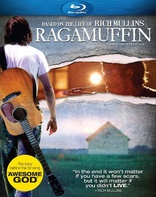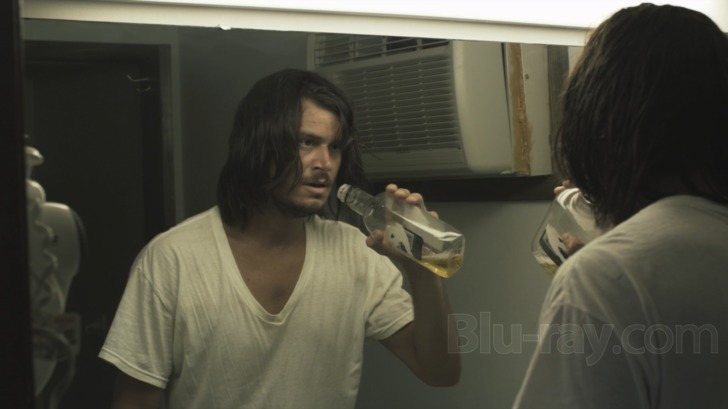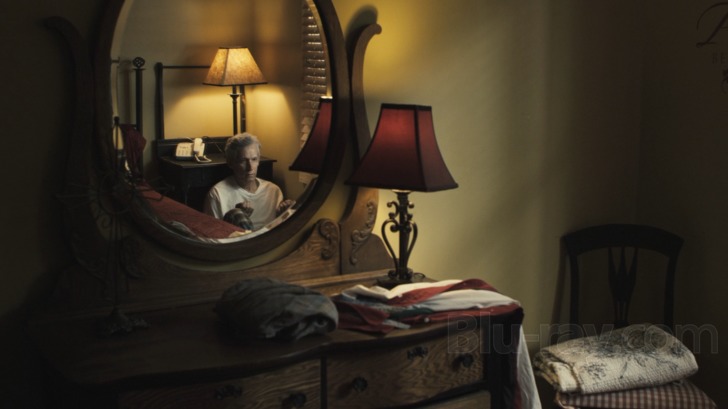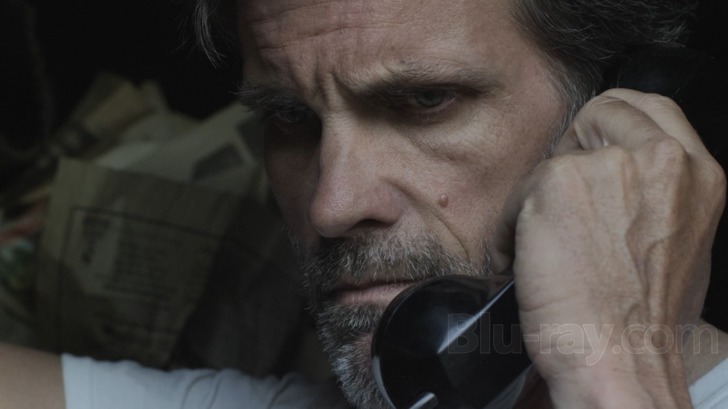Ragamuffin Blu-ray Movie
HomeRagamuffin Blu-ray Movie 
Millennium Media | 2014 | 137 min | Rated PG-13 | Jul 08, 2014
Movie rating
7.3 | / 10 |
Blu-ray rating
| Users | 4.2 | |
| Reviewer | 3.0 | |
| Overall | 3.7 |
Overview
Ragamuffin (2014)
"Ragamuffin" is based on the life of Rich Mullins, a musical prodigy who rose to Christian music fame and fortune only to walk away and live on a Navajo reservation. An artistic genius, raised on a tree farm in Indiana by a callous father, Rich wrestled all of his life with the brokenness and crippling insecurity born of his childhood. A lover of Jesus and a rebel in the church, Rich refused to let his struggles with his own darkness tear him away from a God he was determined to love. As he struggled with success in Nashville and depression in Wichita, Rich desired most of all to live a life of honest and reckless faith amidst a culture of religion and conformity.
Starring: Michael Koch, David Leo Schultz, Mel Fair, Charles Lawlor, Amy Schultz (II)Director: David Leo Schultz
| Drama | 100% |
Specifications
Video
Video codec: MPEG-4 AVC
Video resolution: 1080p
Aspect ratio: 1.78:1
Original aspect ratio: 1.78:1
Audio
English: Dolby Digital 5.1 (448 kbps)
English: Dolby Digital 2.0 (192 kbps)
Subtitles
English SDH, Spanish
Discs
25GB Blu-ray Disc
Single disc (1 BD)
Packaging
Slipcover in original pressing
Playback
Region A (B, C untested)
Review
Rating summary
| Movie | 5.0 | |
| Video | 3.0 | |
| Audio | 3.0 | |
| Extras | 2.0 | |
| Overall | 3.0 |
Ragamuffin Blu-ray Movie Review
It's not the music. It's the search.
Reviewed by Martin Liebman July 17, 2014Ragamuffin ditches the sort of white-washed front and sappy tone that many Christian films are built upon. Sure, there are plenty out there that deal in challenging themes, but they often do so in relative safety, eschewing real life in favor of some artificially darkened but nevertheless make believe world where only a smile, a hug, and a prayer can turn things around. Ragamuffin is something entirely different. For both its character and its audience -- particularly an audience that can understand and appreciate its lead character's journey -- it's a truly cathartic experience, a burst of honesty and integrity and a necessary trampling of clean Christianity. In essence, it's a look at religion in real life, experienced by real people. The film deals in difficult themes and a complex and complicated man, a man who understands who he is, what he does, and from where his salvation will come but who nevertheless struggles to piece it all together, to understand why, to come to terms with his place on a fallible Earth under the guidance of an infallible God. This is perhaps the best example of Christian filmmaking to date, a movie that's a controlled whirlwind of complicated emotions and the truest example of real Christianity daresay anywhere in the cinematic landscape.

Making choices.
Rich Mullins (Michael Koch), unable to please his farmer father John (Mel Fair), leaves home for Cincinnati Bible College to pursue his passions: music and religion. There, he meets Sam (David Schultz) and Sam's father Maurice (Sam Howard), who would serve as a proxy father figure to Rich. Rich and Sam formed a band, Zion, and he met a young lady, Jess (Elizabeth Roberts), with whom Rich would become infatuated. Eventually, Rich's songwriting ability catches the attention of the Nashville music industry and Christian entertainer Amy Grant (Amy Schultz). Mullins moves to Nashville where he finds financial and musical success but nevertheless leads an unfulfilled spiritual life, yearning not for the fame and fortune it provides but rather a closer relationship to God and and a deeper understanding of his spiritual walk through the prism of his inward and outward struggles, a desire that would consume him for the rest of his life.
Rich Mullins was, and is depicted in the film as, a man with a myriad of "issues," the sorts of "issues" that normally aren't associated with Christians, not the kind of problems that people want to see walk through the church doors where it's all too frequently people in their "Sunday best" rather than their "life worst." He was a man in conflict with others -- namely his father -- but also at conflict with himself, attempting to reconcile his place in the world and his sinful, imperfect existence in it with the tenants of Christianity and Christ's salvation. He was a complicated man, a man bearing a broken heart, a man who trended away from an earthly system that wanted to embrace him, a man who smoked, who drank in excess, a man who allowed his Christ-centered emotions to guide him rather strict teachings of Biblical or even earthly living. He was a man in a constant state of personal upheaval and aguish, finding solace in his -- his -- music, not the stylized, play-it-safe, revenue-generating pop hits fit for radio but not suitable for the soul.
It's not his music but instead his search for truth, for answers, for himself, for God, all in the midst of his imperfections, that make him a hero. It's not that he could sing or strum a guitar or push keys on a piano that made him an icon but rather his imperfections and his earnest efforts to find peace, purpose, and salvation in the midst of a world where none of that seems to exist, even in the very soul of a man who believes in He who can provide them. His music allowed him an avenue of expression but, more importantly, a means of communicating his love of Christ and growing understanding of Christ-like living, life purpose, salvation, and embrace of God's endless love for all of His children, even the most flawed of them all, Rich Mullins included.
It is from people like Mullins -- the broken, the battered -- from which the film derives its title. The picture, and Mullins' life, take a turn when he hears and meets Brennan Manning (Charles Lawlor), a preacher who describes a "Ragamuffin" as someone who is "a beggar at the door of God's mercy." In the film, Mullins learns to understand and accept that it is the very people like himself who live a difficult life but who seek out God that are men after God's own heart, much as the Bible describes one of its main characters, David, also a notorious sinner but nevertheless an instrument of God and receiver of God's blessings and grace. It's here where the movie finds its greatest purpose. It doesn't ignore the fact that so many tend to forget, that Christians live the same life in the same world as nonbelievers. They are exposed to the same things, struggle with the same temptations, and deal with moral conflicts in most everything they do. The film espouses a more open, honest, raw sort of Christianity that's not about making people feel good on Sunday and hiding who they really are but rather saving people, spreading the Word of God, and sharing the gift of salvation. Rich Mullins found himself caught between fame and fortune and the leadings of his own heart and soul, the former of which wanted to make him a star, the latter of which wanted to make him more humble, more Christlike. Mullins doesn't struggle with the clash between fame and poverty through the whole film, but the struggle evolves to depict him as a man who bends to the whims of his earthly temptations even under the guiding of his ever-present moral and spiritual compass. It makes for a fascinating dichotomy and a journey that's both heartbreaking and inspiring at the same time. This is cinematic -- and life -- drama at its finest.
Perhaps the film's most interesting story angles come though Rich's relationships with both his earthly father and his Heavenly Father, and the film's message is embodied in the comfort Mullins finds in God but the distance that exists between him and his human father. As noted above, the film's title refers to someone who is imperfect but who nevertheless stands before God, bearing the imperfections and willing to receive God's love as one is, not as some ideal but unachievable person. In essence, the film's themes revolve around the idea that God does not look away from, but in fact smiles upon, people whose lives are defined by challenge or shortcomings and guided by heart, soul, belief, and spiritual necessity rather than physical desire. That contrasts with everything Rich knew growing up. As a child, he disappointed his father with his costly mistakes on the farm and created a fear within his father that he was not capable of growing up into his ideal, someone capable of taking over the family farming business. Even later in life, Mullins' father could not come to terms with the man his son had become and, despite an obvious love for him deep inside his heart, could never properly, adequately, or even at all express those feelings to his son. That disappointment, whether it ran deep or was only skin-deep, was all Rich ever knew of his father. He was too focused on what he wanted his son to be, not on who is son was, and languished in that disappointment rather than opening his eyes -- and his ears, as the case is here -- to the man his son had become. Indeed, it further reinforces the ideas of man's spiritual frailty, shortcomings, and journey off the paths that matter to man but that do not matter to God, so long as the heart is pure and the soul is yearning.
Michael Koch is spectacular as Rich Mullins. Koch, in his feature film debut, conveys a depth of character that would be the envy of veteran screen performers. His ability to so effortlessly embody the spirit of a lost soul helps the film tremendously, as does his effortless control of character in all aspects, from young love to loss, from honesty behind the microphone to emptiness at the bottom of a liquor bottle. Koch's work here is inspired; it doesn't hurt that script and source material are equally fantastic, but there's something special in the performance that elevates the film even beyond its thematic attributes. The rest of the cast is splendid, with special mention to Mel Fair, who portrays Rich's distant, disapproving father, and Charles Lawlor who plays Rich's spiritual guide, Brennan Manning. Director David Schultz's work beyond the camera is excellent, too, aiding the dramatic flow with purposeful photography in key moments but generally sitting back and allowing the audience to become absorbed in the story and the actors who bring it to life, not in slick editing and incessant camera movement that would distract from everything the film has to offer.
Ragamuffin Blu-ray Movie, Video Quality 

Ragamuffin's 1080p transfer is watchable but troubled. Millennium Entertainment's video presentation offers good-to-strong detailing, whether in brief black-and-white segments near the beginning or in the bulk color scenes. Facial textures and clothing intricacies are never so amazing as to be mistaken for real life, but there's a steady evenness to the proceedings that allows for well-defined imagery throughout. Grasses and trees are likewise crisp and shapely even at some distance, as are other finer object detailing like a piano's wooden textures. Colors are often satisfying, particularly large amounts of natural greenery, but the palette is never quite so bold and realistic as one might desire and, indeed, sometimes looks tired and drained. Black levels are the big problem here. They're pale and gray in places and show some moderately heavy crush in others, and rarely is there a real, balanced middle. Flesh tones, however, never show too much difficulty in presentation. Additionally, light banding is evident in spots. Overall, this is a decent transfer but nothing that will make its way to show room floors. For demonstration-worthy Christian cinema Blu-ray video, see Heaven Is for Real.
Ragamuffin Blu-ray Movie, Audio Quality 

Ragamuffin unfortunately lacks a lossless soundtrack option, leaving listeners only with a pair of lossy English tracks, one in the 5.1 configuration and the other 2.0. The 5.1 track delivers a serviceable listen but nothing more. Music never flows with the sort of wide, enveloping effortlessness and clarity for which listeners may have hoped in a film like this, but there is a moderate surround presence to it. Piano notes are nicely detailed and clear, however, during some Mullins concerts and monologues. There's fair rain and thunder ambience in chapter five, but it lacks that sense of real, saturating immersion. A few heavier effects sound a touch muddled and shallow but offer enough power to convey the purpose and emotion behind them. Dialogue delivery is firm and focused from the front center channel.
Ragamuffin Blu-ray Movie, Special Features and Extras 

Ragamuffin contains several bonuses, including an audio commentary track.
- Audio Commentary: Writer/Director David Schultz and Dave Mullins, younger brother of Rich Mullins, offer a quality commentary track, covering a number of technical elements but also building authentic characters, the film's themes, deleted scenes, shooting locations, casting, and much more.
- The Making of Ragamuffin (480i, 10:41): A look at Mullins' influence in lives, the film's purpose, the photography and style, casting and performances, the challenges within the filmmaking process, and more.
- Deleted Scenes (480i): Rich and Justin on the Road (1:50) and Rich Confronted By a Pastor (2:09).
- A Message from Dave Mullins (480i, 5:25): A brief discussion of Rich Mullins' portrayal of the film, the purpose of showing a flawed individual, his father's later years, the movie's purpose, and more.
- Feature title (480i): Additional Millennium titles.
Ragamuffin Blu-ray Movie, Overall Score and Recommendation 

Ragamuffin is an extraordinary movie that breaks Christian cinema convention and, by doing so, produces what is arguably the finest Christian film ever made. It's honest, difficult, and moving. It's the sort of movie that, if one opens his or her mind, heart, and soul to its message, is a potential life-changer. An excellent message, great performances, good music, and terrific technical attributes make this the must-see Christian film of the year and something fit for all audiences, even considering it's darker themes. Unfortunately, Millennium Entertainment's Blu-ray features less than impressive video, somewhat bland lossy audio, and only a few supplements. Nevertheless, this release comes very highly recommended solely on the strength of the film.
Similar titles
Similar titles you might also like

Son of God
2014

God's Not Dead 2
2016

Won't Back Down
2012

The Identical
2014

God's Not Dead: A Light in Darkness
2018

God's Not Dead
2014

War Room
2015

One Night with the King
2006

The Case for Christ
2017

Dragonfly Squadron 3D
1954

Battle of the Year
2013

A.D. The Bible Continues
2015

Do You Believe?
2015

McFarland, USA
2015

Expelled: No Intelligence Allowed
2008

Unbroken: Path to Redemption
with Booklet
2018

The Chosen: Season Five
Standard Edition
2025

Forever Strong
2008

Where the Red Fern Grows
MVD Marquee Collection
2003

The Bible: The Epic Miniseries
2013